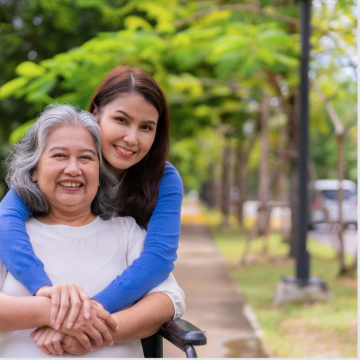
As our loved ones age, it becomes increasingly crucial to pay attention to their changing needs and ensure they receive the support necessary for a fulfilling life. Many aging adults may resist the idea of needing caregiving assistance, but early recognition and intervention can make a significant difference in their overall well-being. Today, we’ll explore how to assess if your loved one requires caregiving assistance and why seeking minimal care early on can reduce the risks of needing extensive care later.
- Physical Health Changes: One of the most noticeable indicators that your loved one may need caregiving assistance is changes in their physical health. Keep an eye out for signs such as difficulty with mobility, unexplained bruises or injuries, weight loss, or changes in personal hygiene habits. These could be indications that they require assistance with tasks like bathing, grooming, or managing medications.
- Cognitive Decline: Another important aspect to consider is any changes in cognitive function. Memory loss, confusion, disorientation, and difficulty with decision-making are all potential signs of cognitive decline. If your loved one is having trouble remembering important dates or events, getting lost in familiar places, or experiencing personality changes, it may be time to seek caregiving assistance.
- Emotional Well-being: Pay attention to your loved one’s emotional well-being as well. Feelings of loneliness, sadness, or anxiety may indicate that they could benefit from companionship or emotional support. Loss of interest in previously enjoyed activities and social withdrawal are red flags that shouldn’t be ignored.
- Household Management: Assess how well your loved one is managing household tasks. Are they able to cook meals, clean, and take care of their home? Difficulty with basic household chores or neglect of home maintenance could signal a need for assistance.
- Safety Concerns: Safety should always be a top priority. Look for potential hazards in your loved one’s living environment, such as cluttered pathways, loose rugs, or unsteady furniture. Falls are a significant risk for aging adults, so addressing safety concerns early on can help prevent accidents and injuries.
- Social Engagement: Isolation and lack of social interaction can harm an aging adult’s health and well-being. Pay attention to your loved one’s social life and ensure they have opportunities for socialization and meaningful connections. If they are becoming increasingly isolated, it may be time to consider caregiving assistance to provide companionship and support.
Seeking minimal caregiving assistance early on can help address emerging needs before they escalate into more serious issues. By taking proactive steps to support your loved one’s physical, cognitive, emotional, and social well-being, you can help them maintain their independence and quality of life for as long as possible.
Remember, it’s essential to involve your loved one in the decision-making process and approach the topic of caregiving assistance with empathy and sensitivity. Encourage open communication, listen to their concerns, and work together to find solutions that meet their needs and preferences.
Assessing if your loved one needs caregiving assistance requires attentiveness to their physical, cognitive, emotional, and social well-being. Early intervention can help mitigate risks and prevent the need for extensive care down the line. By prioritizing their health and safety and seeking support when needed, you can ensure your loved one continues to thrive as they age.

